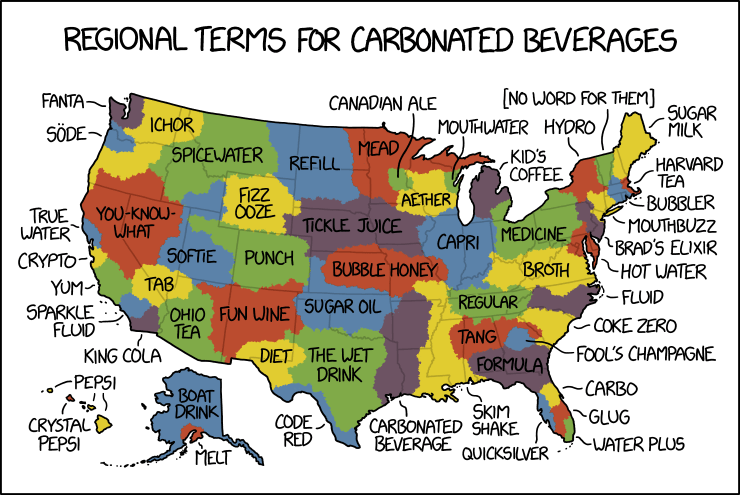[One to four stars. Three sentences each. No spoilers.]
You Only Live Once (dir. Fritz Lang, 1937). Lang’s second American movie begins with wooden dialogue and clumsy comedy but soon turns into a couple-on-the-run story that later directors were to emulate. But like I said, no spoilers. With Henry Fonda, Sylvia Sidney, Barton MacLane, and a terrified Jerome Cowan. ★★★★
*
Written on the Wind (dir. Douglas Sirk, 1956). A bit of dialogue: “Are you looking for laughs, or are you soul searching?” If the answer is both, this movie is an excellent choice: an over-the-top story of alcoholism, bromance, infertility, marital discord, nymphomania (as it used to be called), and wealth. With Lauren Bacall, Rock Hudson, Dorothy Malone, and Robert Stack. ★★★★
*
The Bookshop (dir. Isabel Coixet, 2017). Fine actors, beautifully filmed. But the story is underdeveloped, sometimes coy, sometimes deadly serious, and always — and I do mean always — predictable. With Emily Mortimer, Bill Nighy, and Patricia Clarkson. ★★
*
River of No Return (dir. Otto Preminger, 1954). Fear death by water: a dangerous journey by raft, with majestic scenery, macho posturing, and the deaths of ten or twelve Native people. I am astonished to learn that this film was inspired by Vittorio De Sica’s Bicycle Thieves: wait, what? With Robert Mitchum, Rory Calhoun, a highly mannered Marilyn Monroe, and a surprisingly good Tommy Rettig (soon to be Jeff Miller on TV’s Lassie). ★★
*
Michael (dir. Carl Theodor Dreyer, 1924). A remarkable silent about love between men, with an aging painter (Benjamin Christensen), his beautiful young model (Walter Slezak), and complicating factors. If you know Slezak from Hitchcock ’s Lifeboat (1944), this movie is bound to be a surprise. It’s not a spoiler to quote: “Now I can die in peace for I have known a great love.” ★★★★
*
Two by Paweł Pawlikowski
Ida (2013). Poland, early 1960s, a novice in a convent is directed to make a visit to her sole relation before taking final vows. An utterly compelling road movie of sorts, with deeply felt performances by Agata Kulesza and Agata Trzebuchowska (who had never before acted) and bleakly brilliant silver and gray cinematography by Łukasz Żal and Ryszard Lenczewski. “Why am I not here?” ★★★★
My Summer of Love (2004). A summer idyll between two young women, Mona (Natalie Press), who lives with her brother above the bar he’s turned into a religious center, and Tamsin (Emily Blunt), a child of wealth, who enters the film riding a white horse. At first I thought, Uh-oh, it’s Rochelle, Rochelle. But — again, no spoilers — I was happy to have been proven wrong. ★★★
*
The Kindergarten Teacher (dir. Sara Colangelo, 2018). A great performance by Maggie Gyllenhaal as a teacher who lives through one of her students, a boy with a gift, she believes, for poetry (prose poems, I guess, for there’s never a word about line breaks). Improbable and contrived at times, but deeply disturbing: imagine a version of Fatal Attraction set in a classroom. A remake of a 2015 film (same title) by Nadav Lapid, now in our queue. ★★★
*
Two by Alfonso Cuarón
Roma (2018). Roma is a neighborhood in Mexico City, where members of a three-generation family and two domestic workers live in a house that resembles a compound, with its own gate and an alley for cars. Cleo (Yalitza Aparicio), one of the domestics, the focus of the film, is a stand-in for Liboria “Libo” Rodríguez, a domestic in Cuarón’s childhood home, a woman the director reveres and loves, the woman to whom the film is dedicated, but Cleo (like the members of the family she serves) remains (at least for me) largely unknown. What we do know of her is her selflessness and stoic courage: like Faulkner’s Dilsey, for whom a singular pronoun was inadequate, “They endured.” ★★★
Y tu mamá también (2001). An improvisational road movie, with two horny young men, one affluent, the other not, and an older (though not that much older) woman, testing the boundaries of friendship and sexuality as they travel through an often beautiful, sometimes terrifying, nearly always impoverished landscape. The most remarkable thing about the movie, I think, is that it allows the viewer at many points to forget everything except its present moment. “La vida es como la espuma, por eso hay que darse como el mar.” ★★★★
*
Lassie Come Home (dir. Fred M. Wilcox, 1943). A tear-smeary canine odyssey, as Lassie makes her way from Scotland to Yorkshire to be reunited with a schoolboy. With Nigel Bruce, Edmund Gwenn, Elsa Lanchester, Roddy McDowall, Elizabeth Taylor, and Dame Mae Whitty. But how did Lassie ever end up on a farm just outside Calverton? ★★★★
*
Tristram Shandy: A Cock and Bull Story (dir. Michael Winterbottom, 2005). A movie about the attempt to make a movie of Laurence Sterne’s novel, with false starts, interruptions, interviews with cast members, conversations as to what scenes should be included, and negotiations with agents. The endless comic rivalry of Steve Coogan (Tristram/Walter) and Rob Brydon (Uncle Toby) will mean more to a British audience than it did to me. The film highlights both the comedy and pathos of Sterne’s world, which come together in the scene of Uncle Toby showing Mrs. Wadman where he received his wound — but again, no spoilers.
Related reading
All OCA film posts (Pinboard)
[Oh, the trouble with Netflix: Pawel Pawlikowski has directed six theatrical releases. Cold War (2018) has yet to be released on DVD. Ida is the only one of the other five available from Netflix. I’m already suspecting that Ida might be the best movie I see this year. “La vida es como la espuma, por eso hay que darse como el mar”: “Life is like foam, so give yourself away like the sea.” That’s the English subtitle, with a comma added. Would “surrender yourself” be better?]



























